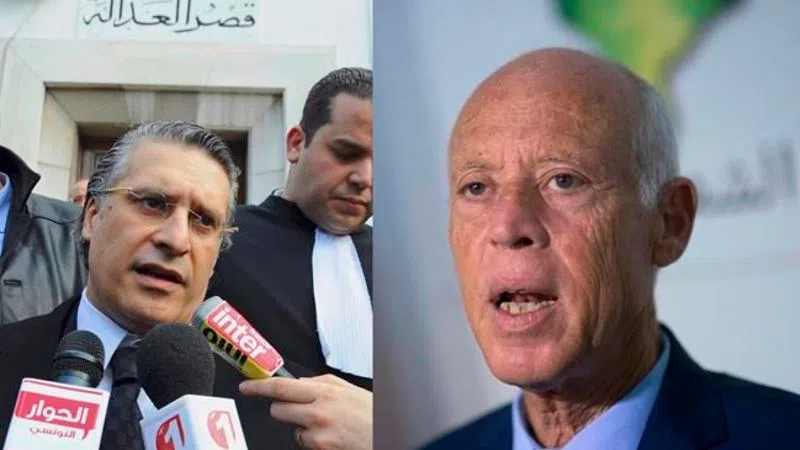
Jailed tycoon and professor in Tunisia’s presidential runoff
TUNIS, Tunisia — Jailed media magnate Nabil Karoui and independent law professor Kais Saied will advance to Tunisia’s presidential runoff, sending the North African nation’s young democracy into an unprecedented electoral battle.
Tunisia’s electoral commission said Tuesday the two candidates came out on top of the 26 running in Sunday’s first round of voting, Saied with 18.4% support and Karoui with 15.6%. It was the country’s second democratic presidential election since the 2011 revolution that toppled autocratic Tunisian leader Zine El Abidine Ben Ali, unleashing the Arab Spring uprisings across the region.
The first-round results left Tunisia with a very conservative constitutional law professor who apparently has little money to campaign pitted against a media-savvy communicator with progressive views and the means to publicize them but who has been jailed since last month.
The date for the presidential runoff hasn’t yet been announced, but the electoral body said it would be held by Oct. 13.


